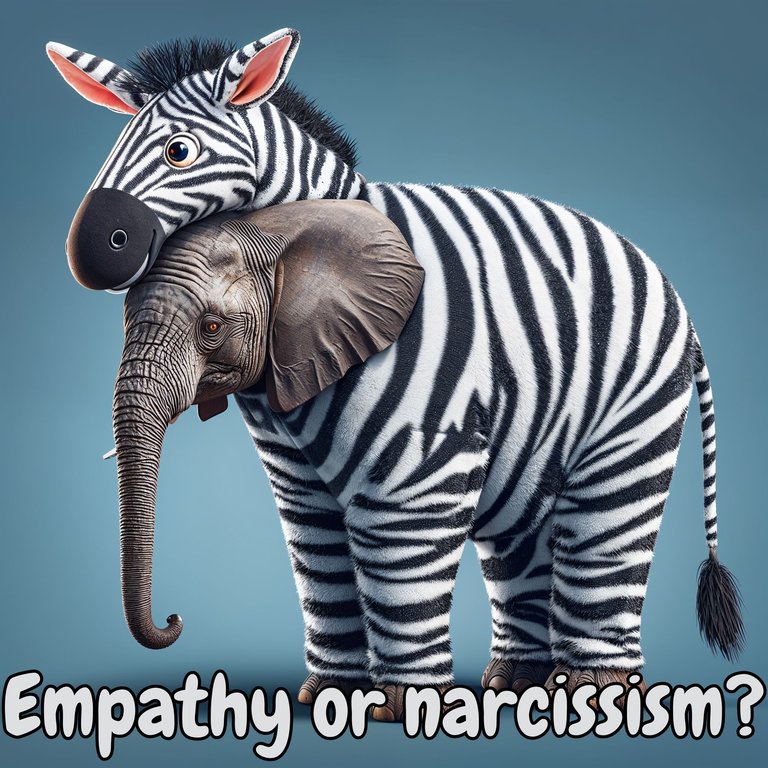
¿Cuántas veces hemos escuchado decir que la empatía es ponerse en el lugar del otro?, ¿y cuántas veces hemos pensado que tener empatía es saber por lo que está pasando el otro o saber cómo siente el otro? Ciertamente, en esta asunción cotidiana se parte de una identificación, o mejor aún, de una proyección sobre otra persona que generalmente es la que sufre. Y sí, como ya habrás leído en el título, vengo a desmontar un poco esta ilusión pretenciosa.
Vamos a partir primero de la raíz etimológica del vocablo. Empatía viene del griego empátheia, que significa «dolor intenso», pero haciendo referencia a un dolor interno, no físico. Fue en 1848 cuando el filósofo alemán Rudolf Hermann Lotze acuñó el término Einfühlungsvermögen para significar «capacidad de empatizar», partiendo de la adaptación germana del vocablo griego. Esta palabra casi imposible de pronunciar, fue utilizada en muchos tratados médicos para hacer referencia a la capacidad de identificarse con los sentimientos ajenos, pero fue en 1909 cuando se hizo popular a nivel mundial gracias a la adaptación anglosajona empathy -por suerte para nosotros-, por el psicólogo británico nacionalizado estadounidense Edward B. Titchener.
Podemos ver que desde sus inicios, el término parte de, al menos, tomar en cuenta la emocionalidad de las demás personas, e identificarnos con lo que sea que estén sintiendo bien porque nos sea familiar o porque creemos haber pasado por alguna situación similar. Pero desgraciadamente todo esto se ha disuelto hasta llegar a nuestros días.
Resulta que hoy por hoy, ser alguien empático es ser alguien que más que identificarse con el estado emocional de las demás personas, se proyecta sobre ellas embistiéndolas con la falsa creencia de que sabemos por lo que están pasando, y más aún, cree sentir lo mismo. O sea, mismo fenómeno pero en sentido contrario. Al final, todo se reduce a un regreso al Yo de quien es «empático»; un regreso que significa una posición de saber respecto a un otro, a un «yo sé lo que te sucede», lo cual se presta para muchas interpretaciones sesgadas desde la propia vivencia para nada objetiva ni empática. Pero entonces, ¿dónde quedaron los sentimientos del otro si solamente se trata de los sentimientos de uno?
Mi criterio es que esta desviación que sufrió la significación de la palabra empatía es, una vez más, responsabilidad del fenómeno de la archiconocida «autoayuda» que ha caricaturizado a la Psicología como disciplina. En un intento, quizás altruista, de pretender hacer propio el sufrimiento ajeno, se consiguió todo lo contrario puesto que ponerse en el lugar del otro es -presta atención-, imposible, y todo termina por tratarse de uno mismo e invalidar a los demás. Quizás se trate, además, de la necesidad de operar dentro de lo conocido, de controlar todo a nuestro alrededor, esa idea del falso equilibrio.
No nos es posible colocarnos en el lugar del otro, porque es precisamente eso: otro. La cuestión está en que asumirlo así, nos da la posibilidad de respetar la diferencia, la otredad, lo que difiere de nosotros. Solo de esta manera estaremos dando lugar a la existencia de una forma totalmente única y diferente de ser y estar en el mundo, la de un sujeto. Al abandonar esa posición de saber que pretende definir y taponar al otro con una falsa creencia de que tenemos la verdad sobre su propia realidad, estamos dejando que sus vivencias cobren valor como algo genuino, y esto tiene un poder validante mucho más fuerte, porque le estamos dando a entender a la persona que sufre, que su sufrimiento es absolutamente permitido, y que nadie tiene la potestad para juzgarle bajo sus propios estándares subjetivos.
Y se pudiera decir más. Se pudiera decir incluso, si somos bien atrevidos, que ponerse en el lugar del otro sí es posible, pero lo es solo desde esa misma posición de divergencia fenomenológica. O sea, ponerse en el lugar del otro solo es posible cuando reconocemos nuestra posición como individualidad, como una configuración específica de saberes y sentires que no puede ser definida más que por nosotros y nosotras mismas. Se trata de asumir, en vez de una posición de saber para con uno mismo, el lugar de la diferencia y salirse de los discursos dominantes.
English version

How many times have we heard it said that empathy is to put ourselves in the other person's place, and how many times have we thought that empathy is to know what the other person is going through or how the other person feels? Certainly, in this daily assumption we start from an identification, or better yet, from a projection on another person who is generally the one who suffers. And yes, as you may have read in the title, I am here to dismantle this pretentious illusion a little.
Let's start first from the etymological root of the word. Empathy comes from the Greek empátheia, which means "intense pain", but referring to an internal pain, not a physical one. It was in 1848 that the German philosopher Rudolf Hermann Lotze coined the term Einfühlungsvermögen to mean "capacity to empathize," based on the Germanic adaptation of the Greek word. This almost impossible to pronounce word was used in many medical treatises to refer to the ability to identify with the feelings of others, but it was in 1909 when it became popular worldwide thanks to the Anglo-Saxon adaptation empathy - fortunately for us - by the British psychologist and naturalized American Edward B. Titchener.
We can see that from its beginnings, the term starts from, at least, taking into account the emotionality of other people, and identifying ourselves with whatever they are feeling either because it is familiar to us or because we believe we have gone through a similar situation. But unfortunately all this has dissolved to the present day.
It turns out that nowadays, to be someone empathic is to be someone who, rather than identifying with the emotional state of other people, projects himself on them, attacking them with the false belief that we know what they are going through, and even more, he believes he feels the same way. In other words, the same phenomenon but in the opposite direction. In the end, everything is reduced to a return to the "Self" of the one who is "empathic"; a return that means a position of knowing with respect to the other, to a "I know what is happening to you", which lends itself to many biased interpretations from one's own experience, neither objective nor empathic at all. But then, where are the feelings of the other if it is only one's own feelings?
My opinion is that this deviation of the meaning of the word empathy is, once again, the responsibility of the phenomenon of the well-known "self-help" that has caricatured psychology as a discipline. In an attempt, perhaps altruistic, to pretend to make the suffering of others one's own, the opposite has been achieved, since putting oneself in the other's place is, pay attention, impossible, and everything ends up being about oneself and invalidating others. Perhaps it is also about the need to operate within the known, to control everything around us, this idea of false balance.
It is not possible for us to put ourselves in the place of the other, because that is precisely what it is: the other. The point is that assuming this gives us the possibility of respecting the difference, the otherness, what differs from us. Only in this way will we be giving rise to the existence of a totally unique and different way of being and being in the world, that of a subject. By abandoning that position of knowledge that pretends to define and block the other with a false belief that we have the truth about his own reality, we are letting his experiences gain value as something genuine, and this has a much stronger validating power, because we are giving the suffering person to understand that his suffering is absolutely allowed, and that no one has the power to judge him under his own subjective standards.
And more could be said. One could even say, if we are very daring, that it is possible to put oneself in the place of the other, but it is possible only from that same position of phenomenological divergence. In other words, putting ourselves in the place of the other is only possible when we recognize our position as individuality, as a specific configuration of knowledge and feelings that can only be defined by ourselves. It is a matter of assuming, instead of a position of knowing for oneself, the place of difference and leaving the dominant discourses.

Créditos | Credits
Imágenes utilizadas | Images used
Todas las imágenes utilizadas son de mi propiedad y fueron generadas utilizando Designer de Copilot, reescaladas con Magnific AI y editadas en Canva | All images used are my own property and were generated using Designer from Copilot, upscaled with Magnific AI and were edited using Canva.
Traducción | Translation
Te puede interesar | You may be interested in
Género, ¿ventaja o desventaja? | Gender, advantage or disadvantage? [ES/EN]
La procrastinación más allá de la pereza | Procrastination beyond laziness [ES/EN]
Las normas sociales y la grupalidad: reflexiones | Social norms and groupness: reflections [ES/EN]
Las personas introvertidas y otros demonios | Introverted people and other demons [ES/EN]
El amor no lo puede todo | Love can't do everything [ES/EN]
¿Depresión de alto funcionamiento? | High-functioning depression? [ES/EN]


Excelente artículo que lleva a la reflexión
Congratulations @genrigp! You have completed the following achievement on the Hive blockchain And have been rewarded with New badge(s)
Your next target is to reach 900 comments.
You can view your badges on your board and compare yourself to others in the Ranking
If you no longer want to receive notifications, reply to this comment with the word
STOPCheck out our last posts: